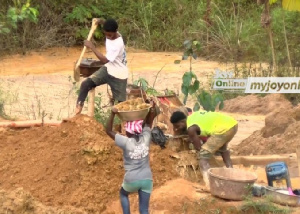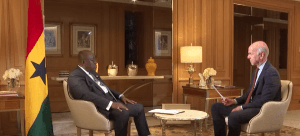- Abaare Reports
- Addi Kujay
- AfricaCNNnews
- Afriyie Kwaku Boachie
- AHAFO
- Alby News Ghana
- ASHANTI
- BONO EAST
- BRONG AHAFO
- Canard Afriq
- Cash In Trash
- CENTRAL
- Cherries
- Club Mate
- Courageous World
- Crest City News
- Current Affairs
- Daily Biz
- DailySpot
- Daniel Kaku
- Da Spicy News
- DC KWAME KWAKYE
- EASTERN
- EBI
- Facts Check
- Gabs Feed
- Ghana News Timeline
- Ghana News Update
- Godblessed1
- GREATER ACCRA
- Great Okocha
- Harry Graphic
- iNews
- Info News Ghana
- King B
- Kofipedia
- Lovely
- Managing GH
- Man Zekay
- Mart News Empire
- Maxkaytheblogger
- Mohammed Zakwan
- MyDailyNews
- Nana Kay News
- News Hub GH
- News Today
- News Zone 360
- Nine 9
- NORTH EAST
- NORTHERN
- ObuabaMedia
- OTI
- Priests News
- Royalnews360
- Sahara Writers
- SAVANNAH
- Simpsons Blog
- Skate News
- Smart News Ghana
- SpinnerWeb
- Teddytheblogger
- Ted News Ghana
- The news
- TheoNews
- Trending Now
- UPPER EAST
- UPPER WEST
- VOLTA
- Wadupgh
- Web Brief
- WESTERN
- WESTERN NORTH
Nana Kay News Blog of Tuesday, 6 June 2023
Source: Island Reporters
World Bank Country Director’s verdict on Mahama’s PPAs makes him the worst president ever – Bempah

A Deputy Director of Communications for the New Patriotic Party ( NPP) Ernest Owusu Bempah has said that it was refreshing listening to the World Bank Country Director Pierre Laporte who spilled the beans “on official complicity on the obvious mismanagement and incompetent of our economy under the erstwhile Mahama administration.”
Mr Bempah said the fact that Ghanaians are now paying the price of what he characterized as Mr Mahama’s trash speaks volumes about the actions of the former Ghanaian leader.
It is remembered that Mr Laporte had claimed that the Power Purchase Agreements (PPAs) under the Mahama government were inadequately negotiated for.
He urged for an urgent assessment of what he termed as “wrong and expensive” deals.
Speaking to the media lately, he remarked “In the aspect of Ghana, those contracts you signed with the PPA are too expensive.
“The kind of PPA you signed, it means Ghana is paying for electricity not in use through the doubling of capacity.
“The fact is, in the last few years, Ghana entered into some PPAs that were wrong. These types, in our perspective, were at the wrong rate and at the wrong pricing and today you’re paying rightly for it. And presently the country is being taxed for many of these erroneous PPAs”, he said.
In a statement reacting to this development, Mr Owusu Bempa who is also Head of Corporate Communications at Ghana National Gas Company said that “Government has been able to pay much of the huge debt inherited in the energy sector to ensure that Ghanaians never experienced the dreaded dumsor that brought about painful socio-economic crisis to all.”
Below is his complete statement
World Bank judgement on Mahama makes him the worst president in history.
John Mahama’s leadership has once again come under examination in the aftermath of the decision delivered by the World Bank Country Director for Ghana, Pierre Frank Laporte.
Speaking in an interview with Joy News, Pierre Frank Laporte pointed out that spillovers from the energy sector is a big factor for our economic troubles.
In actual fact, the World Bank boss feels the problematic energy sector agreement inked by the erstwhile Mahama administration led Ghana into a scenario where the country is now requesting support from the International Monetary Fund (IMF) for balance of payment support.
In fact, what the World Bank is simply saying here is that the persistent unreliable power supply in the Mahama era was compounded by bad Power Purchase Agreements (PPAs) that saddled the nation with huge debts in the energy sector but this avoidable energy sector debt still poses a threat to the economy for adding up to the country’s debt stock.
Sincerity compels me to say that it was invigorating to listen to the Country Director of the World Bank blow the beans on official cooperation in the blatant mishandling and incompetence of our economy during the previous administration of President Mahama.
The fact that Ghanaians are now being forced to foot the bill for Mahama's disaster speaks volumes about the former president.
The government has been successful in paying off a significant portion of the enormous debt that it inherited in the energy sector. This has helped to ensure that the people of Ghana have never been subjected to the dreaded dumsor, which caused a painful socio-economic catastrophe for everyone.
Just to keep the lights on, the Ministry of Finance has shelled out more than 12 billion Ghana cedis—a sum that represents the cost of excess energy capacity charges that it has inherited since 2017. This enormous sum was paid for electricity that the country did not use (over capacity), but according to the structure of power contracts negotiated during the Mahama administration, it was required to be paid anyway.
I would say that my happiness is through the roof because of the decision that was made by the World Bank.
This demonstrates beyond a reasonable doubt that Mahama has never been an effective leader.
In a very short amount of time, he was able to waste one of the most powerful political positions that might have been held by a resident of the Jubilee House.
His political capital was squandered as a result of a slew of scandals, as well as a clumsy combination of denial, disorganization, and even downright lying on his part.
But in the end, it was Mahama's character flaws that eventually brought down his political career. He oversaw the most corrupt administration in the entire annals of our country's political history.
Due to the terrible failure that is Mahama and his incompetence and fragile reputation, Ghana has been forced to look for money in order to pay for around 600MW of surplus capacity of power that was never used. This has been a problem for Ghana since 2017, when Mahama was in office.
In addition, as a result of the inventiveness of President Akufo-Addo, the nation has developed the Energy Sector Reform Programme (ESRP) in order to properly deal with all of the important concerns that are affecting the energy sector.
Under ESRP, the government is renegotiating with IPPs to convert purchase agreements from Take-or-Pay to Take-and Pay to put an end to the payment of surplus capacity that keeps adding to Ghana’s debt stock.
Though government attempts at renegotiating with IPPAs appear a monumental undertaking given the cordiality that has been built amongst the players, undoubtedly there’s light at the end of the tunnel for Ghana.
Interestingly, the country have started paying also for annual excess gas capacity costs of between $550million and $850 million every year due to another contracts that the Mahama government struck into with gas companies also.
Specifically, government paid $520m(GH¢2.7 billion) energy sector debt in 2018; $604m(GH¢3.14 billion), 2019, $1billion (GH¢5.2 billion) payment in 2019 and now paying above $1billion.
IT COMES HIGHLY RECOMMENDED TO YOU!
Food inflation records 26.6% in April, up from the 22.4% in March
The expenses to government would escalate over time due to a cumulative total of over $12.5 billion by 2023 if business as usual in the energy sector continues.
Truly, Mahama’s story as President may be described through one of two storylines. One way, let’s call it the Shakespearean narrative, is of hubris and nemesis. This is a wonderfully human narrative of a populist politician with a common touch, brought down by their personal faults, all very suitable for a leader flinging out threats like King Lear. It is the rogue who eventually got discovered, or the gambler who staked the house and lost. A second method of understanding Mahama, which we might call the "tides of fortune" tale, is about context and recounts the story of a President whose bright optimism and sloganeering strengths on administration became his downfall. This second way of understanding Mahama is called the "tides of fortune" tale.
These two anecdotes touch at the heart of how we think about leaders, and straddle the age-old question addressed by Machiavelli, as to whether it is personality or situation that matters in leadership.
With all due respect, the shortcomings of the Mahama period and the country’s economic stagnation are rendered apparent in compared to their brilliant immediate predecessors.
Love them or hate them all the presidents that came before and after Mahama had specific visions which they built on while in office. Ghana was better off when they left office than when they came in.
In the instance of Mahama, he was simply bad at his job and created an obviously bleak scenario for the nation. A president who turns out to be an unqualified catastrophe will undoubtedly continue to take up space in the footnotes of our history.
Ernest Kofi Owusu Bempah Bonsu- Deputy Director of Communications, NPP.
Business










